By C1 Staff
Inmates are a source of labor that’s both useful and highly contentious, as many feels it takes paying jobs away from law-abiding citizens.
That being said, inmates are still being put to the grind, usually in the hopes that a good day’s work will help speed them toward rehabilitation.
Besides license plates, here are 12 other items that offenders have been known to make, originally found at Mental Floss.
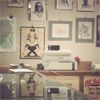 | | Artsy knick-knacks
The gift shop at the San Quentin State Prison in California is stocked with inmate-made music boxes, drawings, paintings and greeting cards. |
| | | |
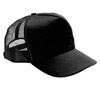 | | Baseball caps
Baseball caps are one of the few items the Federal Prison Industry, a.k.a. UNICOR, can sell to private customers and companies. |
| | | |
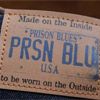 | | Blue jeans
The Eastern Oregon Correctional Institution is home to the Prison Blues Jeans Factory, which makes jeans, jackets, T-shirts and hats. |
| | | |
 | | Books for the blind
The American Printing House for the Blind employs offenders to create K-12 textbooks for blind students. Many are certified through the Library of Congress and transcribe everything from novels to music. |
| | | |
 | | Canoes
Prisoner work programs in Colorado oversee the creation of furniture, and inmates use scraps from there to create fiberglass canoes at the Fremont County Jail. Other programs create college dorm desks and bookshelves. |
| | | |
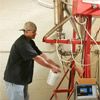 | | Coffee beans
A rehabilitation company called Second Chance Coffee Company has a roasting plant in Illinois that helps ex-convicts restart their lives. |
| | | |
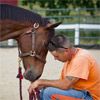 | | Horses
Another Colorado work program involves inmates in the care of retired thoroughbred racehorses. Since 1986, the program has trained over 5000 mustangs to be adopted into new homes. |
| | | |
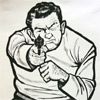 | | Human silhouette targets
UNICOR also has inmates creating the same human silhouette targets used by law enforcement to train to better their aim. |
| | | |
 | | Lingerie
Both Victoria’s Secret and JCPenney used a subcontractor that employed convicts to stitch lingerie and leisure wear in the 1990s. |
| | | |
 | | Military apparel
UNICOR is best known for its creation of military garb, such as jackets, uniforms, helmets, shoes and flak vests. The inmates they employ also create police officer body armor and uniforms. |
| | | |
 | | Old IKEA products
Political prisoners in Cold War-era East Germany made products for the furniture company IKEA from the 1970s to the 1980s. They were reportedly paid 40 East German marks per month, about 4 percent of the monthly salary of the average East German worker. |
| | | |
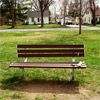 | | Park benches, picnic tables
The Florida program ‘Prison Rehabilitative Industries and Diversified Enterprises’ (PRIDE) trains to create products and perform services; one such area is the creation of park furniture like picnic tables, park benches and wooden trashcan holders. The program helps inmates to land jobs after their release. |
What kind of work programs do you have at your facility?













